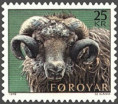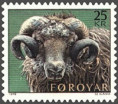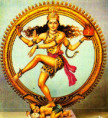A VISIT TO THE INNER ROOM: Fear and consolation in the time of Corona
During these COVID months, when tragedies are exacerbated by the pandemic's overshadowing thundercloud, I open the door to my Inner Room. A place that strangely enough has been described in one of the few poems written by Sir Arthur Conan Doyle, Sherlock Holmes´s creator:
It is mine – the little chamber,
mine alone.
I had it from my forbears
years agone.
Yet within its walls
I see a most motley company
and they one and all claim me
as their own.
.jpg)
Conan Doyle tells us that it is the place where each of us keeps our most personal memories and thoughts.
Now, when loneliness and isolation are spreading all around us, it happens that the door to that room is opened quite often – while young and old are trapped and live alone in apartments and nursing homes, while computers and TVs spread hopelessness and despair.
.jpg)
Others have chosen to live together, but not as now for twenty-four hours, day and night, whereby there is a great risk they begin to gnaw on each other's nerves and souls.
.jpg)
Death and disease, which previously had been awaiting their turn outside the Inner Room, are now making their entrance. During isolation the body's presence becomes increasingly noticeable and thus its ailments and diseases. Mobile phones and computers inform us about how loved ones are consumed by troubles and maladies. How emptiness engulfs the world around us. A new era of cold, ice and desolation is apparently turning up at our doorstep.
.jpg)
The Inner Room may take on the appearance of being like one of thse Southern, darkened church interiors where black-clad widows kneel in front of murky altarpieces and silently lament past times; mourning dead friends and family members.
.jpg)
In the inner room dwells the Black Dog of Melancholy. Nietzsche writes in The Joyous Science:
My dog – I have given a name to my pain and call it “dog”: it is just as faithful, just as obtrusive and shameless, just as entertaining, just as clever as any other dog – and I can scold it and vent my bad moods on it, as others do with their dogs, servants, and wives.
.jpg)
Creatures like the Pain Dog also reside in computers and televisions. Several of them are not at all harmless – they seem to have joined forces with COVID-19 and grown into an increasing threat to humanity. One such creature is named Donald J. Trump, others bear names such as Jair Bolsanero, Vladimir Putin, Recep Erdogan, Muhammed bin Salman, Rodrigo Dutete, Benjamin Netanyahu, Viktor Orbán, Kim Jong-Un, or Matteo Salvini. I do not know where they all come from. Outer Space might be a good explanation, but unfortunately there are seeds for such creations within each and every one of us. I guess what such persons all have in common is a boundless love for the sweetness of power. I find them scary, but there are those who believe they are awesome.
.jpg)
.jpg)
I apologize for my insistence on quoting Nietzsche. Several regard him as a forerunner of Fascism, a god-denying despiser of humans, who praised "blonde beasts", violence and ruthlessness. I have not actually read him as such, but as a philosopher who in his own words was "human, all too human". Reading Nietzsche can be like diving into an abyss contradictory madness, where good and evil coexist. After such deep dives, it may happen that I reach the surface again with one or another pearl of wisdom. Nietzsche is a master of opposites. Listen, for example, to what he writes about the Will to Power, which murderers that Hitler and Mussolini thought they had found a defender in him:
I have found strength where one does not look for it: in simple, mild, and pleasant people, without the least desire to rule—and, conversely, the desire to rule has often appeared to me a sign of inward weakness: they fear their own slave soul and shroud it in a royal cloak (in the end, they still become the slaves of their followers, their fame, etc.).

To me, power drunk people constitute a disturbing presence in the dark corners of the Inner Room. They are frighteningly through their superficiality, soullessness, cynicism and selfishness. Where they loom in the dusk, they appear as menacing mannequins.
Eins, Zwei, Drei, Vier
We are standing here.
exposing ourselves
We are showroom dummies.
We are showroom dummies.
We're being watched
and we feel our pulse.
We are showroom dummies.
We are showroom dummies.
We look around
and change our pose.
We are showroom dummies.
We are showroom dummies.
We start to move
and we break the glass.
We are showroom dummies.
We are showroom dummies.
We step out
and take a walk through town.
We are showroom dummies.
We are showroom dummies.
We go into a club
and there we start to dance.
We are showroom dummies.
We are showroom dummies.
We are showroom dummies.
https://www.youtube.com/watch?v=ZJ9Stc9ONyY&ab_channel=scatmanjohn3001
.jpg)
I assume these powerful human mannequins, just like Nietzsche have their companion dogs. However, with them such a dog cannot be called Pain, but rather Ego. Within powerful narcissists, such beasts are not locked up within any Inner Rooms, but ravage freely within their owners´ bodies, brains and hearts. When such ego-dogs are released, they do like COVID-19 invade the narcissist's entire organism and then spread throughout society, until soullessness becomes endemic. A pandemic that Pope Francis I has described as Global Indifference. Unfortunately, it is not a new disease. In one of Goya's etchings from the series Disastres de la Guerra, a couple of men watch some starving poor people while asking themselves: "Maybe they are of a different lineage?"
.jpg)
In the Inner Room, however, there is also comfort and strength to be found. There is, for example, music, and as Nietzsche pointed out: "Without music, life would be a mistake". I have now slightly opened the door to my Inner Room and music is streaming out. It comes from an operetta with lyrics by Oscar Hammerstein and music by Sigmund Romberg. It expresses love between two life partners:
Marianne:
You went away, I let you.
We broke the ties that bind.
I wanted to forget you
and leave the past behind.
Still the magic of the night I met you
seems to stay for ever in my mind.
The sky was blue,
and high above
the moon was new,
and so was love.
This eager heart of mine was singing:
”Lover, where can you be?”
You came at last,
love had its day:
That day is past,
you´ve gone away:
This aching heart of mine is singing:
”Lover, come back to me!”
Rememb´ring ev´ry little thing you
used to say and do.
I´m so lonely!
Ev´ry road I´ve walked along I´ve walked
along with you.
No wonder I am lonely!
The sky is blue.
The night is cold,
The moon is new,
but love is old.
And while I´m waiting here
this heart of mine is singing:
”Lover come back to me!”
The sky was blue
and high above
the moon was new,
and so was love.
This eager heart of mine was singing:
”Lover, where can you be?”
Robert:
You came at last,
love had its day:
That day is past,
you´ve gone away:
This aching heart of mine is singing:
”Lover, come back to me!”
Ev´ry road I´ve walked along I´ve walked
along with you.
No wonder I am lonely!
Marianne:
Rememb´ring ev´ry little thing you
used to say and do.
I´m so lonely!
And while I´m waiting here
this heart of mine is singing:
”Lover come back to me!”
https://www.youtube.com/watch?v=G5o3pxVzonw&ab_channel=the5thelemen
.jpg)
Conan Doyle, Arthur (2013) Songs of Action. Amsterdam: Fredonia Books. Kaufmann, Werner (1975) Nietzsche: Philosopher, Psychologist, Antichrist. Princeton NJ: Princeton University Press. Nietzsche, Friedrich (2018) The Joyous Science. London: Penguin Classics. Nietzsche, Friedrich (1990) The Twilight of the Idols and the Anti-Christ: or How to Philopphize with a Hammer. London: Penguin Classics.

.jpg)





